Search Results
Showing results 361 to 380 of 570

Smelly Balloons
Source Institutions
Are balloons porous or non-porous? In this activity, learners watch an entertaining Mr. O video and conduct a simple experiment to find out.
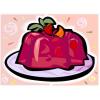
There's Always Room For JELL-O
Source Institutions
In this activity, learners cut wells in JELL-O© and load the wells with different detergent solutions.
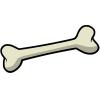
Calcium Collage
Source Institutions
In this activity (on pages 11-14 of PDF), learners cut out pictures from magazines of foods that help make bones strong and glue the pictures to a paper bone.
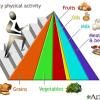
Create a Food Diary
Source Institutions
In this nutrition activity (page 3 of the PDF), learners will record their food consumption for one day, and then evaluate how their actual diet matched up with the recommended diet.
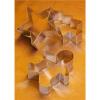
Active Touch
Source Institutions
In this activity (14th activity on the page) about the sense of touch, learners examine if it is easier or harder to identify an object if they move their hands over it.
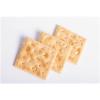
No Saliva, No Taste?
Source Institutions
In this activity (4th activity on the page), learners test to see if saliva is necessary for food to have taste.
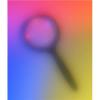
Color Spy
Source Institutions
In this activity (16th on the page), learners play a variation of the "I Spy" game to explore color. Learners work in teams with each team assigned a color.
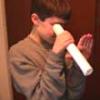
X-Ray Vision?
Source Institutions
In this activity (13th on the page), learners complete a simple illusion trick to see through their own hand.

Traits Bingo
Source Institutions
In this game, learners cross off or color bingo squares in response to questions about their traits.
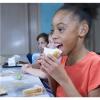
Taste Match Game
Source Institutions
In this activity (3rd activity on the page), learners taste test different foods and categorize them as sweet, bitter, sour, or salty. Learners compare their results with the group.
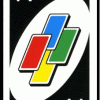
Stem Cell Differentiation Game
Source Institutions
This game uses a modified Uno deck to review concepts related to stem cell research and diabetes.
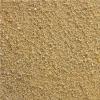
Touch Boards
Source Institutions
Use this activity (13th activity on the page) to introduce learners to the sense of touch. Learners collect objects of varying textures like feathers, rocks, sand, etc.
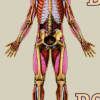
Sketch a Skeleton
Source Institutions
In this activity (on pages 15-18 of PDF), learners make a life-size two-dimensional paper model of their own skeletons.
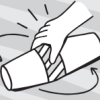
Magic Disc
Source Institutions
In this activity, learners create an optical illusion by spinning two attached cups. A round ball seems to magically appear when the cups spin.
Balance Challenge
Source Institutions
In this quick activity, learners take a balance challenge to measure their average balance time. As they collect data, they investigate how practice and repetition improve their balance time.
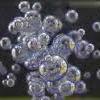
The Pressure's On
Source Institutions
In this chemistry activity, learners explore chemical reactions and their effects, including the kind of reaction in the human body that makes people burp!
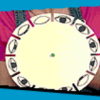
Phenakistascope
Source Institutions
In this optics activity, learners build an animation tool to make mini movies. When you spin a phenakistascope, the pictures move so quickly that your eyes and brain can't separate the images.

Testing Antimicrobials:: Antibacterial Soap? Do They All Work the Same?
Source Institutions
Many common household cleaners are antimicrobials.

Nutritional Challenges
Source Institutions
In this nutrition activity (page 26 of PDF), learners consider the nutritional needs of people with specific dietary requirements, such as athletes, persons with diabetes and vegetarians, and create a
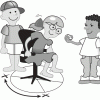
Vestibular-Ocular Reflex
Source Institutions
In this activity, learners will perform various investigations to understand the vestibular-ocular reflex and learn about the importance of visual cues in maintaining balance.
